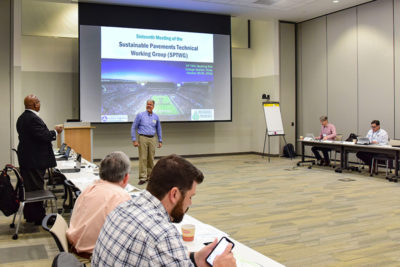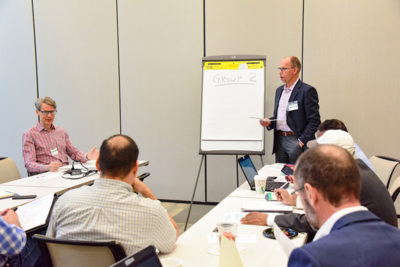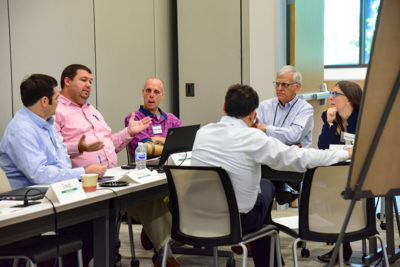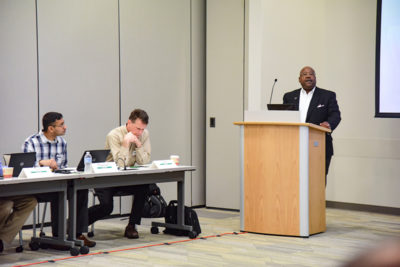
Hosted by the Texas A&M Transportation Institute (TTI), the Federal Highway Administration’s (FHWA’s) Sustainable Pavements Technical Working Group (SPTWG) met at The Texas A&M University System’s Center for Infrastructure Renewal (CIR), located at the A&M System’s RELLIS Campus, Oct. 30–31. The group’s stated purpose is to “provide technical input to the FHWA on sustainability and environmental aspects of pavements and materials and to serve as a forum for information sharing and exchange.”
“Refurbishing the nation’s existing infrastructure cost-effectively—as well as building new facilities needed to meet future mobility demands in a smarter, more sustainable and environmentally friendly way—are essential to the healthy evolution of our transportation system,” states TTI Executive Associate Director Jon Epps, head of the Institute’s Pavement, Materials & Constructed Facilities Group. “Opening up communication among the academic, private and public sectors can help make that happen.”
This was the sixteenth meeting of the group, which gathers semi-annually. The SPTWG focuses on stakeholder engagement, workforce education and developing tools and guides to help practitioners and policy makers understand the issues and challenges surrounding the construction of smarter, longer-lasting infrastructure. The group is also working to produce technology transfer products, such as webinars and technical briefs, to facilitate an ongoing dialogue among stakeholders. For example, the SPTWG’s Sustainable Pavements Program Road Map provides a five-year strategic approach to incorporating sustainability and environmental awareness into the design and construction process.
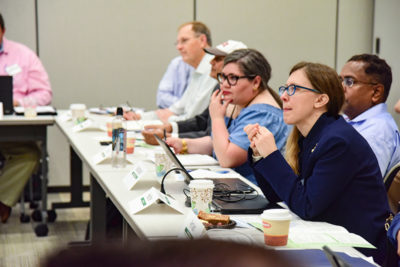
As part of the information exchange, TTI researchers briefed attendees on topics such as the
- use of recycling agents for hot central plant recycle;
- development of cold in-place recycling in Texas; and
- sustainability performance measures for state departments of transportation and other transportation agencies.
Other speakers from the private and public sectors provided lessons learned in making pavement construction sustainable and updates from FHWA regarding policy and practice.
“We spend a lot of sweat and treasure rebuilding our infrastructure after extreme weather events,” notes TTI Agency Director Greg Winfree, who opened the event by welcoming participants. “One of the things we have to prioritize is a more proactive approach to planning. That includes the materials we choose, the methods we choose, even where we choose to build—or better yet rebuild—our communities to create a more reliable, more resilient transportation network going forward.”
